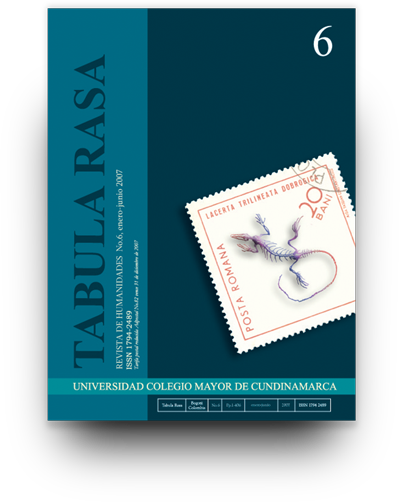«Live and let die»: Foucault and the genealogy of racism
«Hacer vivir y dejar morir»: Foucault y la genealogía del racismo
Show authors biography
This article addresses the Foucault seminar of 1975-6 entitled Il faut défendre la société, or Defending society. The article is not intended to summarize the course, but rather to discern a constellation of radical starting points in Foucault's thought. We will focus on the strong criticism of the repressive or Hobbesian hypothesis of power, and the development of a productive or genealogical conception of power. This is connected to the question of the productive role of racism in a new form of power and sovereignty, one that Foucault calls biopower. Racism is analyzed in terms of how it reintroduces in biopolitical sovereignty the power to kill and kill, a power that has distanced itself from sovereignty as it has become a form of pastoral power, as Foucault later argues in his lectures. . Finally, we discuss the ways in which Foucault's immensely original analysis of racism can be used in the American context to understand the repetition and virulence of acts of violence against racially marked subjects, and how this challenges the political philosophy of our time.
Article visits 344 | PDF visits 94
Downloads
Agamben, Giorgio. 1998. Homo Sacer: Sovereign power and bare life. Stanford: Stanford University Press.
Burchell, Graham, Colin Gordon y Peter Miller. 1991. The Foucault Effect: Studies in Governmentality. Chicago: University of Chicago Press.
Dean, Mitchell. 2001. “‘Demonic Societies’: Liberalism, Biopolitics, and Sovereignty” en Thomas Blom Hansen y Finn Stepputat, (eds). States of Imagination: Ethnographic Explorations of the Postcolonial State. 41-64, Durham, NC: Duke University Press.
Dray, Phillip. 2002. At the Hands of Persons Unknown: The Lynching of Black America. Nueva York: Random House.
Foucault, Michel. 2000. Power. Essential Works of Michel Foucault. 1954-1984. Volumen 3, editado por James D. Faubion. Nueva York: New Press.
Foucault, Michel. 1997. ‘Il faut défendre la société’: Cours au Collège de France (1975-1976). París: Gallimard/Seuil.
Lemke, Thomas. 1997. Eine Kritik der politischen Vernunft: Foucaults Analyse der modernen Gouvernementalität. Berlín, Hamburgo: Argument Verlag.
Lifton, Robert Jay y Greg Mitchell. 2000. Who Owns Death? Capital Punishment, the American Conscience, and the End of Executions. Nueva York: William Morrow.
Martin, Luther H., Huck Gutman y Patrick H. Hutton. 1988. Technologies of the Self: A Seminar with Michel Foucault. Amherst: The University of Massachusetts Press.
McCarthy, Thomas. 2001. “Political Philosophy and Racial Injustice: From Normative to Critical Theory” Manuscrito en página principal de internet de Northwestern University. http://www.philosophy.northwestern.edu/people/facDocuments/
Marks, John. 2000. “Foucault, Franks, Gauls: Il faut defender la socièté: The 1976 Lectures at the Collège de France”. Theory, Culture & Society, Vol. 17, No. 5 (Octubre 2000): 127-147.
Mendieta, Eduardo. 2004. “Plantations, Ghettos, Prisons: US Racial Geographies” Philosophy & Geography, Vol. 7, No. 1, (2004): 43-60.
Mendieta, Eduardo. 2002. “There are no Races, Only Racisms: On Leonard Harris’ Racism (Humanity Books, 1999)”. Continental Philosophy Review, Vol. 35, No. 1 (2002): 108-115.
Miller, James. 1993. The Passions of Michel Foucault. Nueva York: Simon & Schuster.
Morris, Meaghan y Paul Patton. 1979. Michel Foucault: Power, Truth, Strategy. Sidney: Feral Publications.
Ojakangas, Mika. 2001. “Sovereign and Plebs: Michel Foucault Meets Carl Schmitt” Telos, No. 119 (Primavera 2001): 32-40.
Proctor, Robert. 1988. Racial Hygiene: Medicine under the Nazis. Cambridge, MA: Harvard University Press.
Stoler, Ann Laura. 1995. Race and the Education of Desire: Foucault’s History of Sexuality and the Colonial Order of Things. Durham, NC: Duke University Press.




